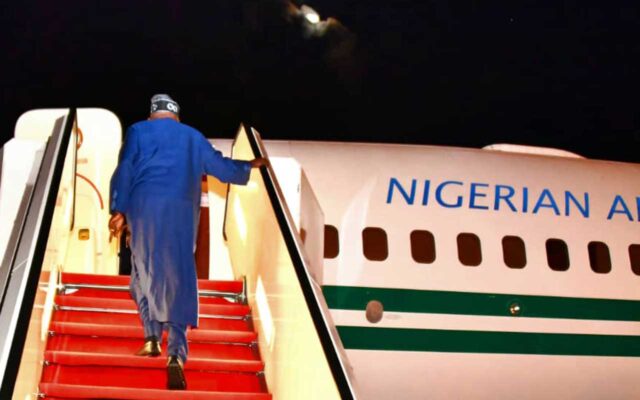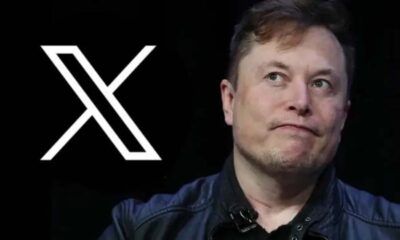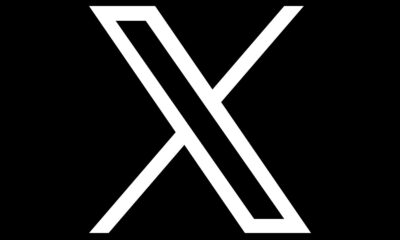News
Unban Twitter, focus on insecurity, USAID, ActionAid tell FG

- SERAP drags Buhari to ECOWAS court
- Trump hails FG, regrets not banning Twitter, Facebook
The United States Agency for International Development and ActionAid Nigeria have asked the Federal Government to lift the suspension on Twitter.
The Socio-Economic Rights and Accountability Project (SERAP) and 176 concerned Nigerians have also taken the FG to ECOWAS court over what they called “the unlawful suspension of Twitter in Nigeria, criminalisation of Nigerians and other people using Twitter and the escalating repression of human rights, particularly the rights to freedom of expression, access to information, and media freedom in the country.”
But former US President Donald Trump has hailed Nigeria for suspending the operations of Twitter in the country.
The Federal Government had on Friday suspended the operations of Twitter indefinitely due to its use for activities that were capable of undermining Nigeria’s corporate existence.
The Minister of Information and Culture, Alhaji Lai Mohammed, announced the suspension of the micro-blogging social network, days after Twitter deleted a post by President Muhammadu Buhari for allegedly violating its policy.
The USAID’s message was conveyed by a senior American diplomat, who is the current administrator of the agency, Samantha Power.
While the Country Director, ActionAid Nigeria, Ene Obi, said the FG’s major attention should be focused on tacking insecurity in the country and not Twitter.
Power, in a tweet on her verified handle on Wednesday, wrote, “There are nearly 40 million Twitter users in #Nigeria, and the country is home to Africa’s largest tech hub.
“This suspension is nothing more than state-sanctioned denial of free speech and should be reversed immediately. #KeepItOn.”
She said the government should eliminate insecurity and other socio-economic challenges confronting the country.
In the suit filed before the ECOWAS Community Court of Justice in Abuja, SERAP and the concerned Nigerians are seeking “an order of interim injunction restraining the federal government from implementing its suspension of Twitter in Nigeria, and subjecting anyone, including media houses, broadcast stations using Twitter in Nigeria, to harassment, intimidation, arrest and criminal prosecution pending the hearing and determination of the substantive suit.”
The suit was filed by Solicitor to SERAP, Femi Falana SAN, contending that “if this application is not urgently granted, the Federal Government will continue to arbitrarily suspend Twitter and threaten to impose criminal and other sanctions on Nigerians, telecommunication companies, media houses, broadcast stations and other people using Twitter in Nigeria, the perpetual order sought in this suit might be rendered nugatory.”
Obi of ActionAid Nigeria also spoke in Abuja on the Twitter ban at the Youth Digital Engagement Project Closeout and Dissemination meeting.
She called on the government to rescind its decision as it had huge impact on the lives of emerging young entrepreneurs depending on social media for their livelihood.
“It’s also a counterproductive move for a nation seeking to create more jobs and reduce poverty as part of its post-COVID-19 recovery strategy,” Obi said.
She said that the YDE sought to use technology to support the work of young people in holding duty bearers to account through funding from Danish International Development Agency (DANIDA).
She said that in Nigeria, the innovation was pioneered in partnership with Gombe State Youth Parliament, Gombe State; the African Human Development Centre, Akwa Ibom State and the Centre for Information Technology and Development (CITAD) in the FCT.
Trump, in a statement on Tuesday night, commended Nigeria for the action, calling on more countries to “ban Twitter and Facebook for not allowing free and open speech.”
“More countries should ban Twitter and Facebook for not allowing free and open speech – all voices should be heard.”
The former US leader also expressed regrets for not taking action against them while he was president.
He said: “In the meantime, competitors will emerge and take hold. Who are they to dictate good and evil if they themselves are evil?
“Perhaps, I should have done it while I was President. But Zuckerberg kept calling me and coming to the White House for dinner telling me how great I was.”
Trump also made a veiled reference to his speculated 2024 presidential ambition by simply saying: “2024?”
The News Agency of Nigeria reports that Twitter and Facebook had in January suspended Trump’s accounts indefinitely.
Facebook had also on Friday announced that it had banned Trump from its two platforms – Facebook and Instagram – for two years, effective January 7, 2021.
Facebook, in a statement by Nick Clegg, Vice-President of Global Affairs, cited “severe violation” after Capitol Hill riots of January 6 and that Trump’s accounts would only be reinstated if conditions permitted.
The former US president had also opened his own personal website: www.donaldjtrump.com to enable him continue reaching millions of his supporters.
News
I’m alive, Obasanjo reacts to death rumour

I’m alive, Obasanjo reacts to death rumour
Former President, Olusegun Obasanjo, has said he is alive, hale and hearty.
He stated this in reaction to rumours of his death being reportedly spread on some social media platforms.
He spoke in Osogbo, Osun State, during the inauguration of the Old-Garage/Oke-Fia Road reconstructed by Governor Ademola Adeleke.
Obasanjo said those who wanted him dead were spreading the rumour of his death on the social media.
He said, “I heard the rumour that I was dead. I saw it on the social media. I quickly told my children and my relations that it was not true and that I’m alive.
“Those that want me dead, that is their wish, but God still keeps me alive.”
Obasanjo praised Adeleke for his performance in Osun and charged the governor to keep up the work.
Governor Adeleke assured the people of the state that his administration would complete all the ongoing projects.
“My dear people of Osun State, our administration has constructed over 120 kilometres of roads across the state.
“Two major flyovers are also progressing to completion at Osogbo while work is progressing at the Ile Ife Flyover and Ilesa dualisation.”
News
Tinubu jets out to France on three-day visit

Tinubu jets out to France on three-day visit
President Bola Tinubu will travel to France today (Wednesday) for a three-day state visit at the instance of the French president.
A statement issued by the President’s Special Adviser on Information and Strategy, Bayo Onanuga, confirmed this.
It said, “The Nigerian leader’s three-day visit, which will focus on strengthening political, economic, and cultural relations and establishing more opportunities for partnership, particularly in agriculture, security, education, health, youth engagement and employment, innovation, and energy transition, promises significant benefits for Nigeria.”
Onanuga said Tinubu and Macron would harmonise positions on stimulating more interest in exchange programmes that focus on skill development for youths and improving their competencies in automation, entrepreneurship, innovation, and leadership.
“Both leaders will participate in political and diplomatic meetings highlighting shared values on finance, solid minerals, trade and investments, and communication,” he added.
“They will also witness a session by the France-Nigeria Business Council, which oversees private sector participation in economic development.”
The presidential adviser stated that the Nigerian first lady and her French counterpart would discuss solutions for empowering women, children, and the most vulnerable through the Renewed Hope initiative.
News
Yahaya Bello reports to EFCC office with lawyers

Yahaya Bello reports to EFCC office with lawyers
A former Governor of Kogi State, Yahaya Bello, on Tuesday visited the Economic and Financial Crimes Commission (EFCC) to honour another invitation extended to him over alleged misappropriation of funds.
Bello went to the anti-graft office with his lawyers in the morning.
The ex-Kogi governor reportedly drove himself to the EFCC’s office in a black Toyota Hilux van with some lawyers.
He was said to have been taken by some operatives of the agency and are currently being grilled.
This is coming after the Supreme Court judgment which dismissed a suit brought by some state governments challenging the constitutionality of the agency.
The EFCC at the last hearing on November 14, sought the adjournment till November 27 in the fresh case it instituted against Bello.
It stated that the 30-day window was still running for the summons earlier issued.
-

 metro1 day ago
metro1 day agoBREAKING: Port Harcourt refinery begins operation
-

 Sports23 hours ago
Sports23 hours agoFrench football star, Paul Pogba’s blackmail trial begin in Paris
-

 Business3 days ago
Business3 days agoJust in: Dangote refinery reduces petrol price for marketers
-

 Politics2 days ago
Politics2 days agoLagos 2027: Seyi Tinubu campaign team releases his life documentary
-

 Entertainment2 days ago
Entertainment2 days agoPolygamy best form of marriage for Africa – Okey Bakassi
-

 metro2 days ago
metro2 days ago40-foot container falls on car in Lagos
-

 International2 days ago
International2 days agoTrump to sack 15,000 transgender officers from U.S. military: Report
-

 Education22 hours ago
Education22 hours agoUS University opens 2025 scholarships for international students












